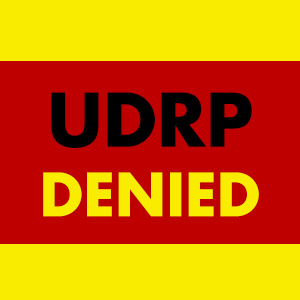
UDRP denied.
The domain Rosefield.com was registered in 2002; its current owner values the generic qualities of the domain, in reference to a field of roses.
A Dutch company, Rosefield Watches B.V. of Amsterdam, Netherlands, attempted to snatch the domain; first, they offered $100 dollars, and then, by filing a UDRP at the WIPO.
The Respondent also turned down an offer of $2,000 dollars, which in our opinion does not represent the true worth of this exquisite, generic domain. Many expert domain investors would place the worth of Rosefield.com in the mid five figures.
The Complainant asserted that it has a trademark since 2014, which was applied for in August 2016.
According to the Respondent, “Rosefield” is a common geographic name and that the pay-per-click links offered on the website were triggered by an algorithm; the domain was parked at Domain Name Sales.
The WIPO panel found the following:
“The Panel also finds that there is no element in this case that could demonstrate that the Respondent, on balance of probabilities, intended to target the Complainant and its trademark though the use of the disputed domain name.
Indeed, the circumstances of the case suggest that the Respondent, which appears to purchase domain names in bulk to profit from their use, registered the disputed domain name for its inherent value as it is constituted of two common English language words, and it also corresponds to a common surname.”
The three member panel at the WIPO, consisting of Luca Barbero, M. Scott Donahey and Diane Cabell, delivered the following decision on Rosefield.com :
“As to the use of a domain name corresponding to a generic or common term in connection with a parking service to derive pay-per-click revenue, the Panel notes that, as stated in a number of prior UDRP decisions, such use is not illegitimate to the extent that it does not capitalize on a trademark value. In the case at hand, upon being notified that its parking site was targeting the Complainant’s area of business, the Respondent promptly gave instructions to adjust the algorithm being used in order to remove the offending links from its website. In light of the circumstances of the case and the characteristics of the disputed domain name, the Panel does not find that the Respondent’s modification of the content displayed on the website at the disputed domain name after receipt of the Complainant’s cease and desist letter amounts to bad faith as alleged by the Complainant.
Neither the Respondent’s bad faith can be proven by the Complainant’s attempts to purchase the disputed domain name from the Respondent, since the negotiations were initiated by the Complainant and there is no evidence that the amounts proposed were equal to or exceeded the Respondent’s costs associated with its purchase and use of the disputed domain name.”
The UDRP was thus denied. For the full text, click here.
Copyright © 2025 DomainGang.com · All Rights Reserved.











